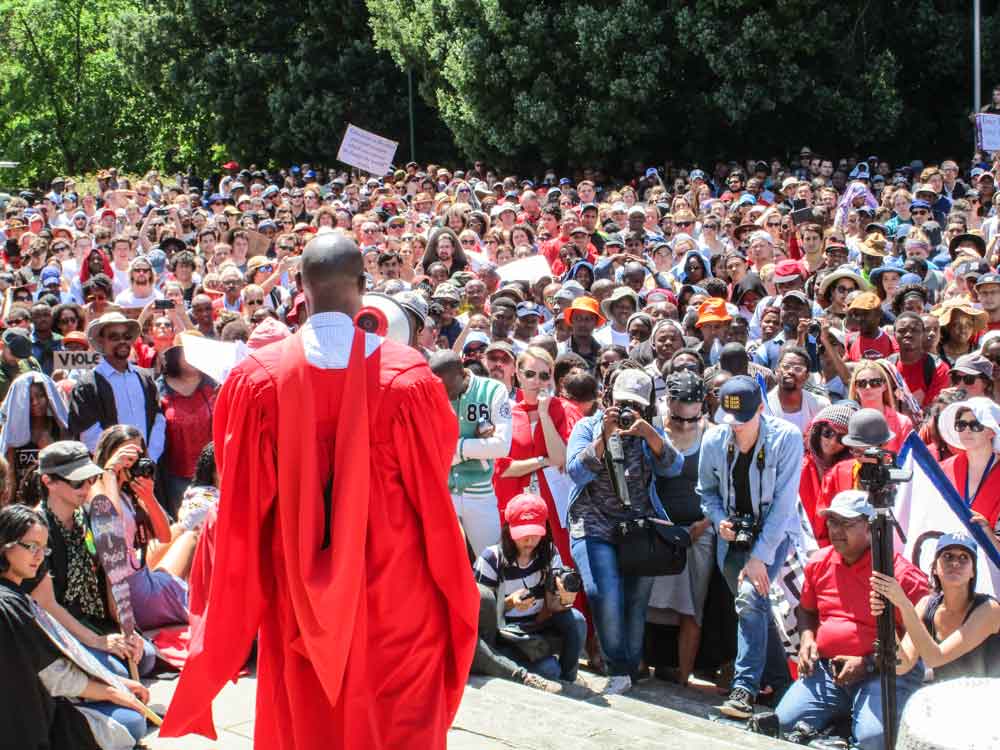Today, 3 December 2020, is International Day of Persons with Disabilities around the world. It also marks the conclusion of South Africa’s Disability Rights Awareness Month (DRAM). From the 3 November to 3 December every year we have a month-long commemoration of disability rights and the diversity of all persons with disabilities. This is the annual highpoint of the disability rights movements in South Africa whereby the government gets involved more deeply with the sector. Business and disability support organisations collaborate to raise funds specifically for vulnerable persons with disabilities so as to improve their circumstances. Today also marks Casual Day, led by the National Council of and for Persons with Disabilities.
Prior to the COVID-19 pandemic and the subsequent lockdown measures to halt the spread of the coronavirus, employees could purchase a Casual Day sticker that enabled them to attend work in less formal attire. For some of us who have spent most of the year working from home due to the lockdown, we have spent most of our time in casual clothing, perhaps only slipping on a smart shirt or top as we faced the relentless barrage of ZOOM and other online video meetings. Thus, every day since April has been a ‘casual day’ for many of us.
Together we have personally experienced the effects and scariness of both the COVID-19 pandemic and the lockdown, losing friends, family and colleagues in the process or being unable to visit loved ones and those in need of our support and care. We have also had to bear the news of colleagues, friends and family in other parts of the country and globally, who have contracted the virus but managed to defeat it. We have also noticed the calamitous increase in Gender-Based Violence across the country, possibly due to, amongst others, the psychosocial effects of lockdown, the changes and frustrations that it has brought to our world, our homes, our lifestyles, and the fear of contracting the coronavirus.
Yet, we have been able to overcome the changes, the trials and tribulations these have brought into our lives. We have achieved this by working together and supporting one another in many ways. The human spirit has triumphed.
Medical and emergency services personnel, along with caregivers have selflessly continued to provide increasingly demanded and necessary assistance, while putting themselves and their families at risk.
Amidst the hardships of the year, we witnessed increased kindness and empathy towards people, often less fortunate than ourselves. The homeless and the jobless appear to receive increased empathy from others more fortunate including, food or money and often late at night. I have heard how small business have managed to survive during the strictest levels of lockdown because some of their clients and customers paid them for services that they could not provide. This enabled them to sustain themselves, their employees, their families and then reopen as the restrictions reduced. Even as the economy has gradually opened, it has not been a return to business as usual. Indeed, it may never be as it was before COVID-19 arrived. In the future, our lives may take on a before COVID-19 and an after COVID-19 lens.
Although the COVID-19 pandemic has revealed the fractures within our society more deeply than ever before, it has also displayed a new, or greater, humanity within us, as South Africans and global citizens.
As disability rights awareness month draws to a close today, I would like to urge you to think about persons with disabilities who make up your families, your friends, colleagues and even those you may encounter in your life. Please remember that their physical or psychosocial impairments are emphasised by the social structures and the lack of facilities that acknowledge and subsequently support their challenges – it is the context that is disabled. Those who are physically or psychosocially challenged do not want pity. They simply need the recognition and understanding that in some situations they are not quite like you. Some of us may have challenges seeing or hearing what you see and hear. Others may not be able to move or express themselves at the same pace as you or even use the same facilities that you do. Some may be institutionalised or ignored because there is nobody to care for them.
Perhaps wearing masks, using ZOOM or being cautious about leaving your home has increased your understanding and empathy of the challenges of communication and reduced socialisation and movement. Take time to reflect on how COVID-19 and the lockdown measures have potentially ‘disabled’ you by preventing you from doing what you used to do and what you want to do.
As with people everywhere, persons with disabilities are diverse. So are their experiences and abilities to cope with societies’ disabling features. Some are more vulnerable than others, particularly poor women and children.
While you reflect upon how COVID-19 and the lockdown may have ‘disabled’ you in some instances, please put some time aside from your ZOOM meetings, that you are doing in your casual clothes today, and support Casual Day.
You can do this by going to the following website: https://www.casualday.co.za. Here you can find out more about Casual Day and if you want you can buy digital sticker. This contribution is used to assist those persons with disabilities who are most vulnerable and will be appreciated by them.
Should you want to know more about disability rights, I suggest you look at the White Paper and other documents on the rights of persons with disabilities. Those of you who want less technical and somewhat light-hearted reading, but no less informative and based on personal experiences, I suggest you read the following two books when you take a break this year. Deaf Sentence by David Lodge (2008 Penguin books) and Leslie Swartz’s Able-Bodied – scenes from a curious life (2010 Zebra Press).
Perhaps one of the legacies of the year COVID-19 arrived in South Africa will be an increased sense of empathy and understanding of the challenges that others face, that some are more vulnerable than others and the realisation that we are not so different after all? It is our diversity that should unite us rather than divide us.
Tim Hart is a Senior Research Manager in the Developmental, Capable and Ethical State division of the Human Sciences Research Council.


